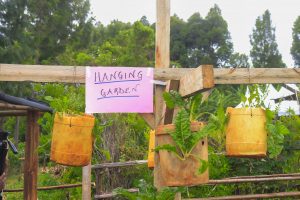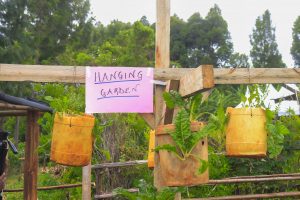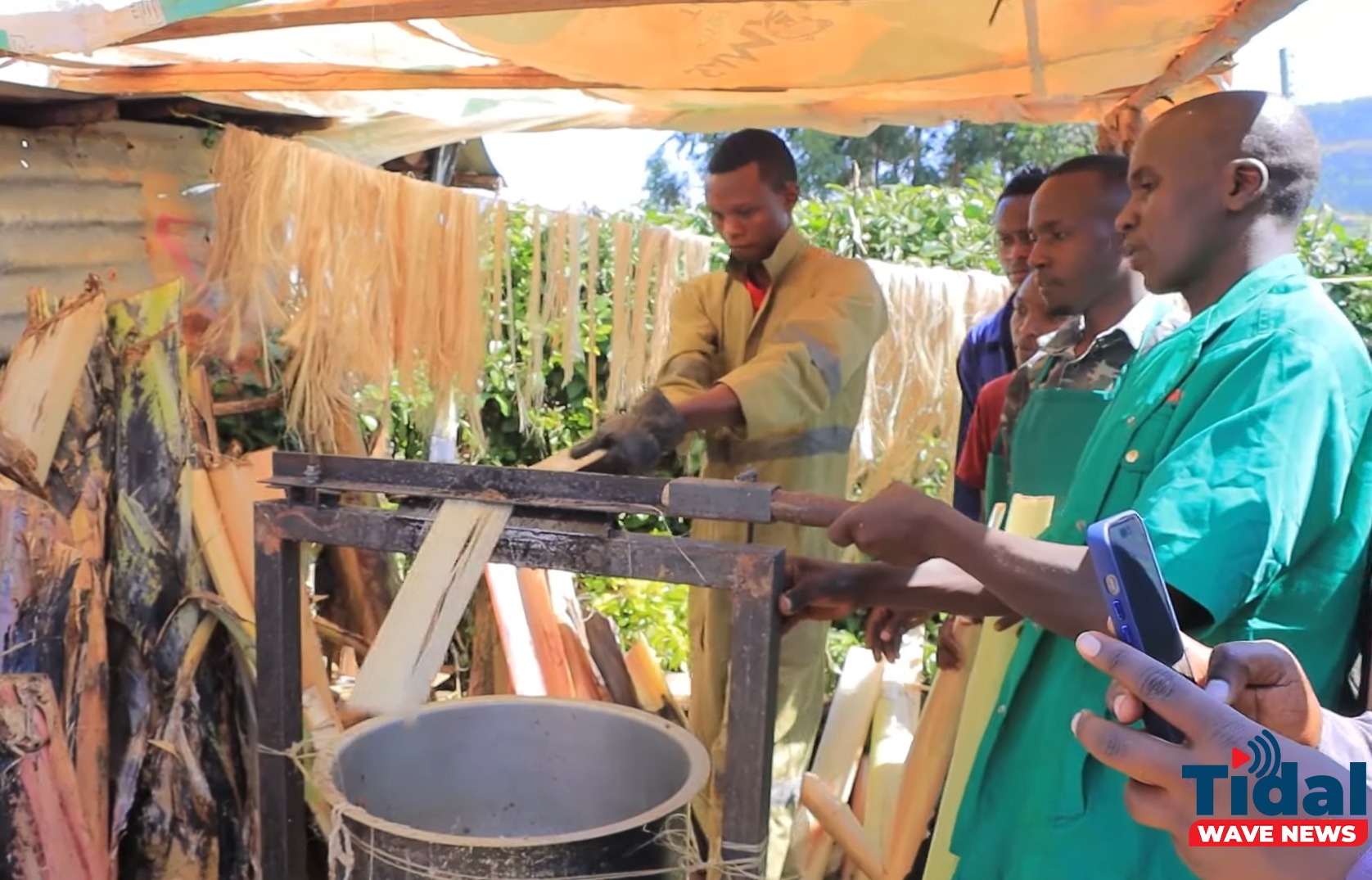
Lilian Onyango
Saida Ishmael has about 3×5 meters free space outside her house. That’s her shamba, whence she should be growing food to feed her eight members’ family.
For as long as she has lived in Nubia village in Kisii town, she has been buying food from the nearby Daraja Moja market. Well, since December last year, she has toned down the frequency of visiting the open-air market to buy food.
In November, last year, one Dominic Obadiah, a humanitarian worker and founder of Global Voice community-based organisation landed in the densely populated, squeezed Nubian village in Nyanchwa estate.
He introduced the towering home gardens in the Nubian community to bolster ease the burden of getting food, a basic necessity that he says they were still struggling to meet.
Saida says that the coming of the home gardens has boosted her big time and cushioned her erstwhile hard life.
“I am very grateful for this project because I have been struggling to buy vegetables every day. Here we don’t have any land for farming. Our means of livelihood are just as miraculous as this one,” she said.
Nubia village derives its name from the inhabitants of the area. The Nubian community have lived there for more than a decade. Interestingly, their houses stand out from the surrounding posh homes, where the middle and upper class of the town dwell.
The community members, who are approximated to be about 500 have no other land to till, save the area where their ramshackle houses sit.
Obadiah says that it’s the dire situation of the community’s state of affairs that moved him to introduce the project in the community.
“You see, these people have no land to farm. The cost of living in Kenya keeps rising and they have no jobs to get money. So I saw it wise to teach and set up these gardens in their small compounds, to give them food. Those whose families are not so big can even sell the vegetables and get some money,” he said.

The gardens are made of special fibre sacks, and they are about a metre high. They are filled with composite manure and mixed with soil. Vegetables such as sukuma wiki, spinach and cabbages are planted all around. Each sack can have about 15 plants. The gardens are portable and are fenced around with wire mesh.
“Each garden costs about Sh 8000. The good thing is that they are sustainable and do not need much care. One needs to just irrigate them with water early in the morning and late in the evening. The contents of the sack are supposed to be replaced after a year,” Obadiah said.
Obadiah says that he plans to set up such gardens in a hundred households in the community. He works with women and youths.
“I have done these projects in Bomet, and Nyamira and they have been successful. I have also trained farmers with small lands for tilling in Uganda and Tanzania and they have helped them a lot. That’s why I want the 100 households in Nubia village to be my ambassadors and teach other families and homes in the area,” he said.
Ahmed Abdul, an elder in Nubia village says that the project has been the missing link in his family’s dietary needs.
“Before this garden came to my home, my family and I used to go for days without eating green vegetables because they are expensive and omena is cheaper. But now that I have one in my compound I can afford to alternate between omena and sukuma wiki, managu and even spinach,” he said.
Ahmed said that in addition to consuming the vegetables, sometimes other members of the community sell because the vegetables blossom quite fast even after picking.
“We are now sure of what we are eating because it’s coming from our land In our compounds, unlike what you buy from the market, which you can’t even be sure of the source and how they are grown,” Ahmed said.
Ibrahim Mohammed, 29, married last year. He lives with his wife, and they get their vegetables solely from the garden in their compound.
“In fact, I sell more than we consume. This garden is a blessing to me and my neighbours. They come here almost every day to seek vegetables. I’m thinking of setting up another garden in the remaining space,” he said.
Saida, who was the first beneficiary of the project, is now the de facto assistant of Obadiah. She is supposed to help fellow women in her village to establish and tend the gardens, a thing she says she enjoys doing, although the demand is becoming more than she imagined.
“I have been requesting Obadiah to come back and help my friends have theirs too, because I may not do it as perfectly as he did. Besides those who need these gardens are many and I’m just one,” she said.
Obadiah said that he keeps moving from one place to another to carry out such projects and other humanitarian activities. He however said that he makes sure the people know how to take care of the projects before leaving them completely.
“I’ve been held elsewhere where I’m carrying out other activities, but I will go back as soon as possible. In fact, I’m planning to introduce a certain species of avocado that bears fruits after a year. So I will be back soonest,” he said.
Ahmed appealed to other groups and community-based organisations to consider Nubia village.
“We need more such projects here. We are even requesting to have an MCA from our community to articulate our issues to the government because we have been forgotten for so long,” he said.




One thought on “The rise of towering home gardens in Nyanchwa residence”